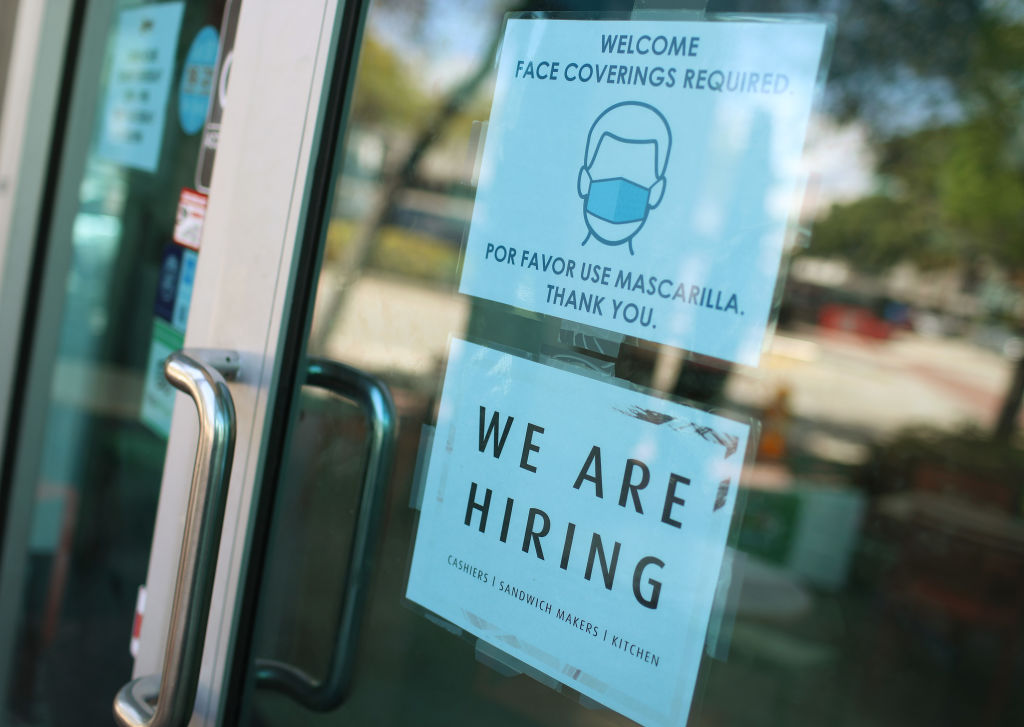U.S. economy adds over 700,000 fewer jobs than expected: 'Thought this was a glitch on my computer'


A free daily email with the biggest news stories of the day – and the best features from TheWeek.com
You are now subscribed
Your newsletter sign-up was successful
The latest U.S. jobs report has come in way under expectations.
The Labor Department said Friday the U.S. economy added 266,000 jobs in April, whereas economists had been expecting around 1 million jobs would be added, CNBC reports. The Labor Department had previously said that 916,000 jobs were added in March, though this number was revised down to 770,000 on Friday. The unemployment rate also increased slightly from six percent to 6.1 percent.
The report was so significantly below expectations that Politico reporter Megan Cassella wrote that when she saw the 266,000 number, "I thought this was a glitch on my computer." In fact, it was "the biggest miss, relative to expectations, in the history of the payrolls report," Axios reports.
The Week
Escape your echo chamber. Get the facts behind the news, plus analysis from multiple perspectives.

Sign up for The Week's Free Newsletters
From our morning news briefing to a weekly Good News Newsletter, get the best of The Week delivered directly to your inbox.
From our morning news briefing to a weekly Good News Newsletter, get the best of The Week delivered directly to your inbox.
Economist Justin Wolfers wrote that 266,000 jobs being added "would be fabulous in normal times, but is utterly disappointing" compared to the forecasts, adding, "This is a big miss that changes how we think about the recovery."
The miss comes as some businesses, The Washington Post writes, have told lawmakers they've been "having a hard time recruiting workers, particularly for low-wage, hourly jobs." Glassdoor senior economist Daniel Zhao said the result was surprising "given the increasing distribution of vaccines and continuing economic reopening," adding it will likely be "interpreted as being caused by labor shortages, raising the temperature on the political debate surrounding extended unemployment benefits."
A free daily email with the biggest news stories of the day – and the best features from TheWeek.com
Brendan worked as a culture writer at The Week from 2018 to 2023, covering the entertainment industry, including film reviews, television recaps, awards season, the box office, major movie franchises and Hollywood gossip. He has written about film and television for outlets including Bloody Disgusting, Showbiz Cheat Sheet, Heavy and The Celebrity Cafe.
